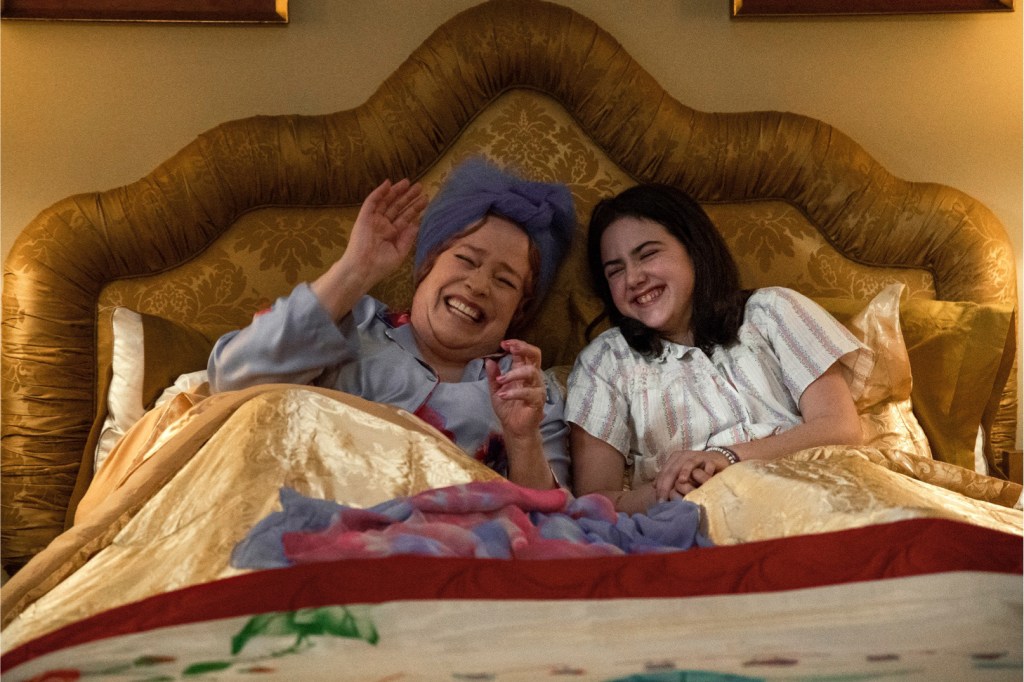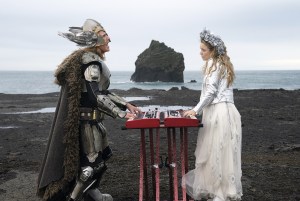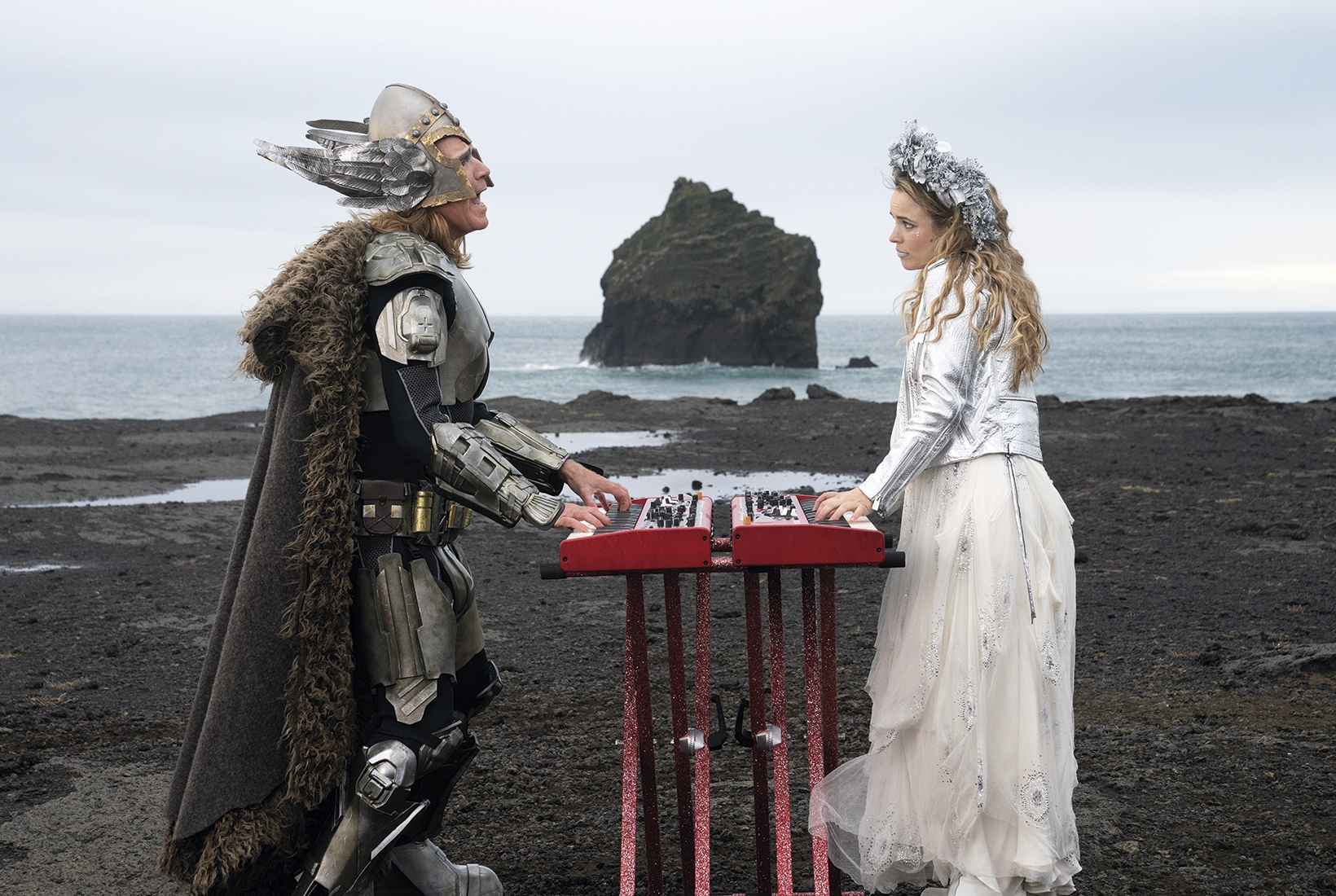When I mentioned to friends that I was reviewing Are You There God? It’s Me, Margaret, the new film based on Judy Blume’s hit 1970 novel of the same name, I was hit by unabashed enthusiasm. This is a coming-of-age story about an eleven-year-old girl as she navigates school, puberty, religion and boys. My peers couldn’t wait to see it.
“‘We must, we must, we must increase our bust!’ was my mantra growing up,” gushed one new mom in her mid-thirties, referring to Margaret and her friend’s group chant as they try, unsuccessfully, to grow breasts.
I shouldn’t have been surprised. Are You There God? is a movie as much for nostalgic Gen X-ers and millennials, who grew up reading Blume, as it is for today’s social media-savvy tweens who might view the story as quaint and Margaret’s concerns small.
The film follows Margaret as she moves from the bustling streets of 1970s Manhattan to the New Jersey suburbs with her Jewish father, Herb and art teacher mother Barbara, a lapsed Christian. Margaret doesn’t want to go. She doesn’t want to leave the only city she has ever lived in, and most of all she doesn’t want to move away from her grandmother Sylvia, a larger-than-life matriarch prone to dramatic statements that match her bouffant hairstyle and bling costume jewelry.
In an attempt to stall the move, Margaret starts talking to God, using the phrase, “Are you there God? It’s me, Margaret.” In the process, she confronts her own lack of organized religion. Her sweetly-in-love, tolerant parents have decided not to raise her in any faith. They want to let her choose what to be, or not to be, when she is an adult.
For all her trepidation, the move isn’t half as horrible as Margaret fears. Almost immediately, she is adopted by her bossy, dominating neighbor Nancy, who invites her to a suburban rite of passage: a run in the garden sprinklers on a hot summer’s day. Margaret joins Nancy’s secret club alongside two other sixth graders. Together they buy their first bras, confess their crushes and obsess competitively about when their period will come.
It was the blunt discussion of menstruation that hit such a nerve when Are You There God? was first published. For fans, the novel finally confronted the trepidation, anxiety and hopefulness that young girls felt as they faced their changing bodies. For detractors, its frankness was in poor taste, while its open questioning of faith was dangerous. The book was targeted by far-right Christians, and in the 1990s and 2000s was a regular on the American Library Association’s list of 100 most-banned works.
Today, pre-teens face not just puberty but online bullying and peer pressure. They are used to consuming dramatic life-and-death plot lines, such as the vampire hit Twilight or The Hunger Games franchise, in which children are forced to gruesomely murder each other in an annual reality-TV game by a dystopian authoritarian state.
Childhood attraction to danger is hardly new: my favorite books growing up were the Grimms’ Fairy Tales and Roald Dahl’s The Witches. The hit movie of 1991 was My Girl, in which eleven-year-old Vada, raised by a single father, also battles concerns about her first period, believing she is hemorrhaging. It ends with the passing of her best friend.
Which is to say that, by comparison, the stakes in Are You There God? It’s Me, Margaret seem low. I’m all for quiet, contemplative, life-affirming movies. But I found much of this one achingly dull and emotionally hollow: the cloying, cheesy music, which dictated how to feel at sad moments and how to feel at happy moments, felt a little too manipulative.
While the book sticks closely to Margaret’s point of view, with the adults and their own concerns distant (as they often seem to kids), the movie fleshes out and adds a backstory for Margaret’s warm, loving mother Barbara. She struggles with her own move to the suburbs, as she tries to find her feet as a stay-at-home housewife before she rediscovers art.
McAdams is radiant in the role. But that radiance tends to dominate Margaret’s own plot line. A braver choice would have been to fully embody Margaret’s emotions and to rely less on an ensemble cast, who, while talented, are distracting. I wanted to be inside Margaret’s head, to viscerally feel her worries and fears, not to watch Happy Days on the big screen.
It’s revealing that the moment I found most authentic didn’t involve Margaret at all, but her pushy friend Nancy, whose parents are kept at arms’ length. Nancy tries so hard to be grown up: she practices kissing on her bedpost, marches around the neighborhood in her bikini and tells the other girls triumphantly she has got her period (she hasn’t). When it really does arrive — in the toilet of a fancy uptown restaurant — she is terrified, sobbing for her mom.
As the camera closes tightly on her tear-stricken face in the claustrophobic cubicle, Nancy’s panic is tangible and her confusion palpable. Her mother comes to help, but in the end, this is a rite of passage that Nancy must come to terms with alone. All her boasting disappears. She is scared. I wish that Margaret could have tugged at my heart in the same way.















